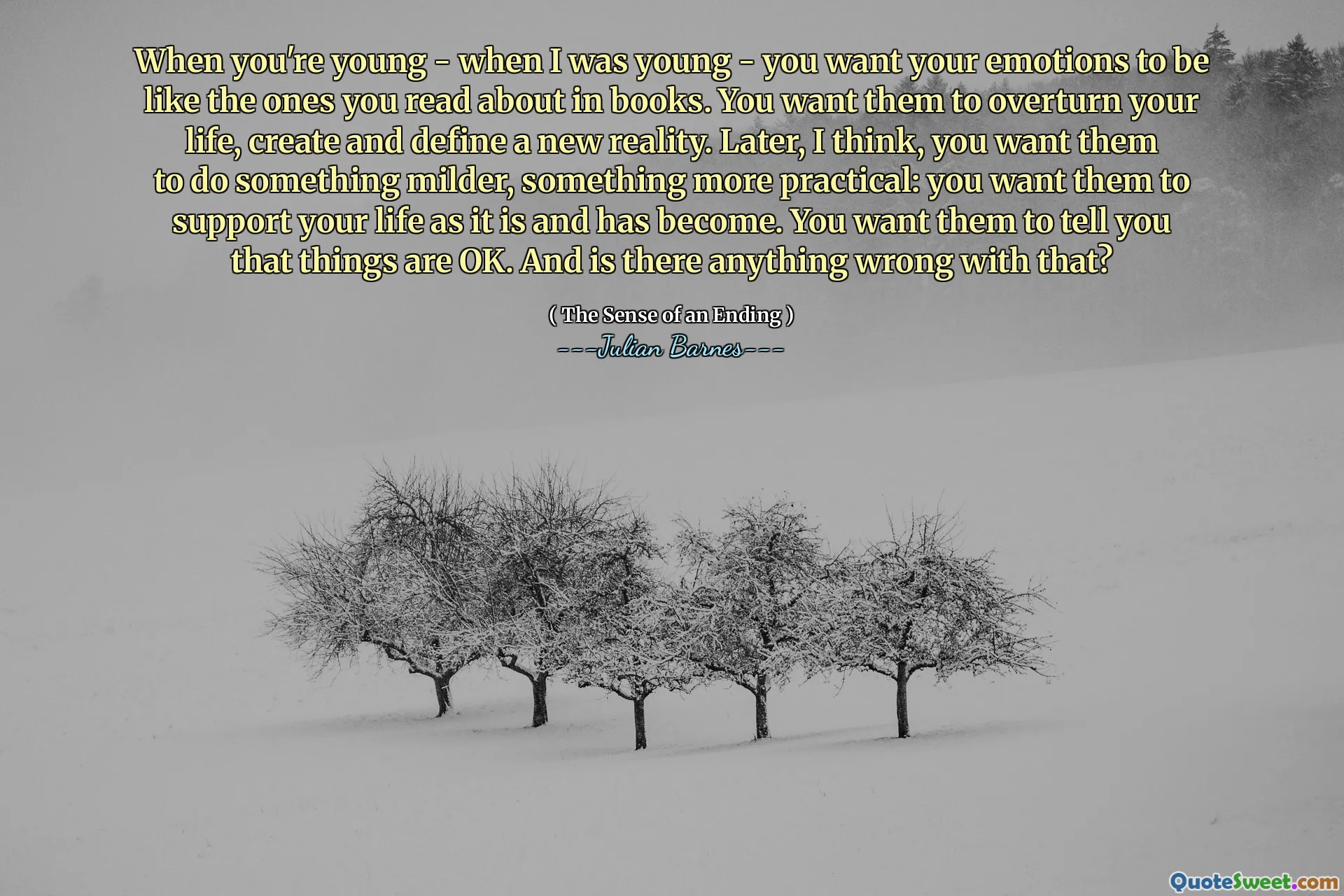
When you're young - when I was young - you want your emotions to be like the ones you read about in books. You want them to overturn your life, create and define a new reality. Later, I think, you want them to do something milder, something more practical: you want them to support your life as it is and has become. You want them to tell you that things are OK. And is there anything wrong with that?
This quote beautifully captures the evolving nature of our emotional desires as we progress through different stages of life. When we are young, there's a romanticized longing for intense, transformative experiences—emotions that feel grand, disruptive, and capable of rewriting our very sense of reality. Such feelings match the narratives we often indulge in while reading literature or watching stories unfold on-screen, where characters undergo dramatic upheavals that lead to personal growth or revelation. These fervent emotions can foster a sense of vitality but can also evoke chaos and instability. As maturity sets in, the focus shifts towards emotional stability and practicality. The desire becomes more subdued, aiming to provide comfort, reassurance, and a sense of normalcy. We begin to cherish the acceptance that our feelings, while perhaps less sensational, support our current realities rather than threaten them. This shift mirrors the natural human tendency to seek emotional security as responsibilities and life structures become more complex and demanding. It sparks a reflection on whether this pragmatic approach to emotions signifies a loss or a gain—it can be seen as a relinquishing of youthful passion, but also as a form of emotional wisdom. Embracing such moderation allows us to find peace and resilience, reinforcing that feeling 'OK' is a valid and valuable emotional state. Ultimately, there is nothing inherently wrong with this transition; rather, it underscores the adaptability of our emotional landscape throughout life, urging us to accept the changing paradigms of our feelings.






